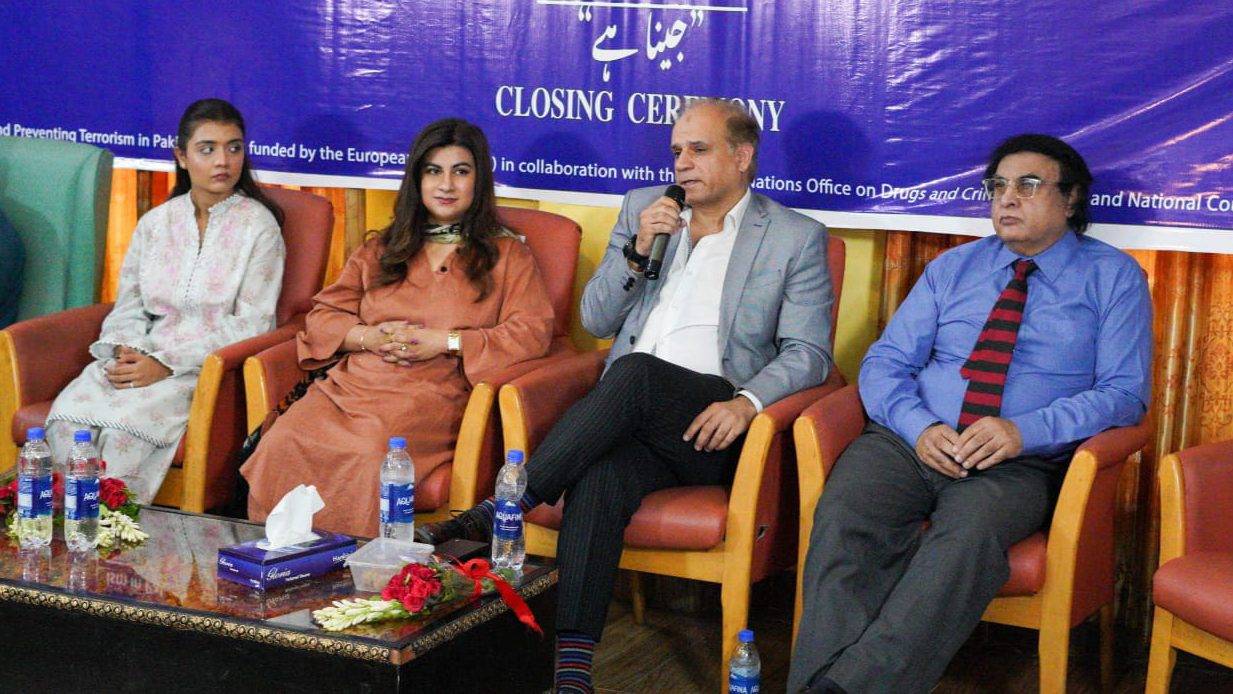In a significant move to rehabilitate and empower victims of terrorism and persons with disabilities, the Milestone Society for the Special Persons marked the completion of its EU-funded initiative, “Say No to Terrorism: Advocacy Through Victims of Terrorism,” with a closing ceremony held at Milestone House on Thursday.
The project, implemented in collaboration with the United Nations Office on Drugs and Crime (UNODC) and the National Counter Terrorism Authority (NACTA), aimed to address the needs of victims—many of whom are left physically impaired or socioeconomically marginalized due to acts of terrorism. From civilians in conflict-prone regions to low-ranking security personnel, the victims are often those with the least access to rehabilitation services.
More than 100 beneficiaries received essential assistive devices under the project, including 25 electric wheelchairs, 25 manual wheelchairs, 25 hearing aids, and 25 white canes. This intervention was especially targeted at survivors in KP and Punjab, including women, children, and the elderly living with disabilities. In addition, the project is documenting the individual stories of the victims through video narratives to amplify their voices on social media.
Speaking at the event, Col (R) Shahzad Amir, CEO of the Punjab Charity Commission, emphasized the importance of public-private collaboration in rebuilding lives shattered by violence. Other notable speakers included Dr Izhar Ul Haq Hashmi from the Punjab Welfare Trust for the Disabled (PWTD), Dr Khalid Jamil, UNODC representatives Ms Fatima Raza and Ms Mariana Iqbal, and Muhammad Shafiq Ur Rehman, President of Milestone.
Muhammad Shafiq Ur Rehman noted the profound change the assistive devices had brought to the recipients’ lives, allowing for increased independence and social engagement. UNODC officials commended the timely and efficient delivery of the project’s objectives.
While the project’s accomplishments are commendable, the event also drew attention to deeper systemic issues. The underlying causes that make communities vulnerable to extremism—poverty, unemployment, and social exclusion—remain largely unaddressed. As commendable as this humanitarian intervention is, without broader structural reforms and long-term support, such efforts may serve only as temporary relief.
Related: Young Student Dies from Alleged Beating at Illegal Madrasa
Still, the initiative represents a rare instance of inclusive policymaking—one that places victims not just as recipients of aid but as advocates for peace and resilience.



